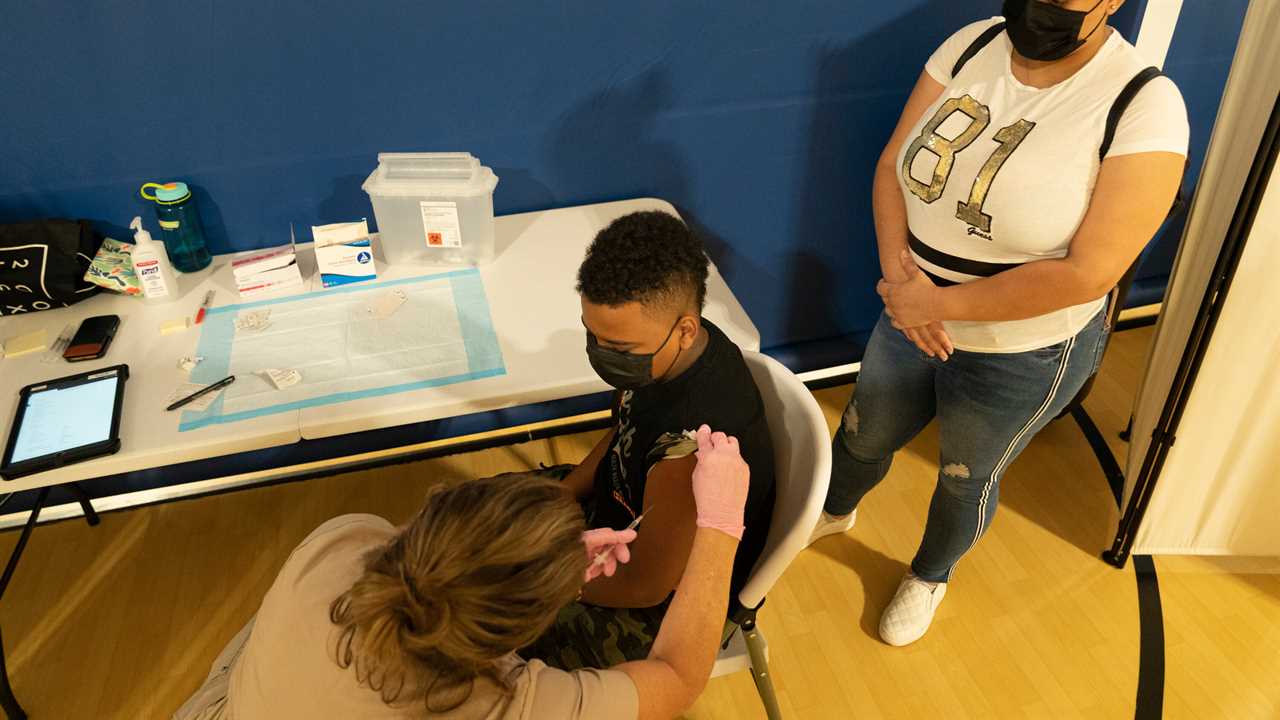
WASHINGTON — The White House, worried that coronavirus vaccination rates among young people are lagging as the school year approaches, is enlisting pediatricians to incorporate vaccination into back-to-school sports physicals and encouraging schools to host their own vaccination clinics as part of a new push to get students their shots.
The initiative, announced on Thursday by Education Secretary Miguel A. Cardona, is part of a broader “return to school road map” aimed at getting students back to in-person learning this fall. School officials around the country are worried that a surge in coronavirus cases, fueled by the highly infectious Delta variant, will threaten the return.
Roughly 90 percent of the country’s educators are vaccinated, Dr. Cardona said during an appearance in the White House briefing room, and the administration sees vaccinating students as essential to keeping schools open. But experts and school superintendents said in interviews that increasing vaccination rates among students may be a slow and uphill battle.
“When you look at a map of the United States and you see those states that have low vaccination rates and high infection rates, those are the areas where superintendents are having problems in getting kids vaccinated,” said Dan Domenech, executive director of AASA: The School Superintendents Association, which represents about 13,000 superintendents around the country.
Young people ages 12 and older have been eligible for vaccination since May, when the Food and Drug Administration gave emergency authorization to the Pfizer-BioNTech vaccine. Though the nation has met President Biden’s goal of having at least 70 percent of adults at least partially vaccinated, only 40.7 percent of 12- to 15-year-olds and 51 percent of 16- to 17- year olds have received at least one dose, according to data collected by the Centers for Disease Control and Prevention.
Last week the C.D.C. said it wanted in-person schooling to resume across the country, and updated its mask guidance to call for universal mask use by students, staff members and visitors in schools, regardless of their vaccination status or the rate of community transmission of the virus.
Dr. Cardona issued a pointed message to Republican governors, including Ron DeSantis of Florida and Greg Abbott of Texas, about the steps they have taken to prevent local officials from requiring face coverings.
“Don’t be the reason why schools are interrupted,” Dr. Cardona said. “Kids have suffered enough.”
A White House official, speaking on condition of anonymity to preview Dr. Cardona’s announcement, said the administration was focusing on school athletics as an important path to vaccination.
Millions of students play organized sports, and some school officials are making the case that if student athletes get vaccinated, they will be able to avoid quarantining — and forfeiting their games — if they are exposed to an infected person.
To that end, the White House official said, the administration has enlisted groups including the American Academy of Pediatrics and the American Medical Society for Sports Medicine to help put out guidance for doctors and update the forms required for school physicals. Dr. Cardona and Doug Emhoff, the husband of Vice President Kamala Harris, are expected to visit a school vaccination clinic in Kansas next week.
The White House has also declared the week beginning this Saturday as “a week of action,” in which the administration is partnering with community groups to run texting campaigns and phone banks to encourage young people to get their shots.
Mr. Biden called last week for every school district to host at least one pop-up vaccination clinic, and many schools and school districts — particularly those in urban areas — are already doing so.
Latest Updates
- Novavax is still struggling to produce its vaccine.
- Some school districts defy U.S. governors on mask rules.
- Boston’s mayor draws sharp criticism for condemning so-called vaccine passports.
The Covid Collaborative, a bipartisan group of politicians and policymakers, has also been working with the White House and educational associations to promote school-based clinics.
“Schools as vaccination sites is an issue whose time has come,” said John Bridgeland, a founder of the collaborative.






